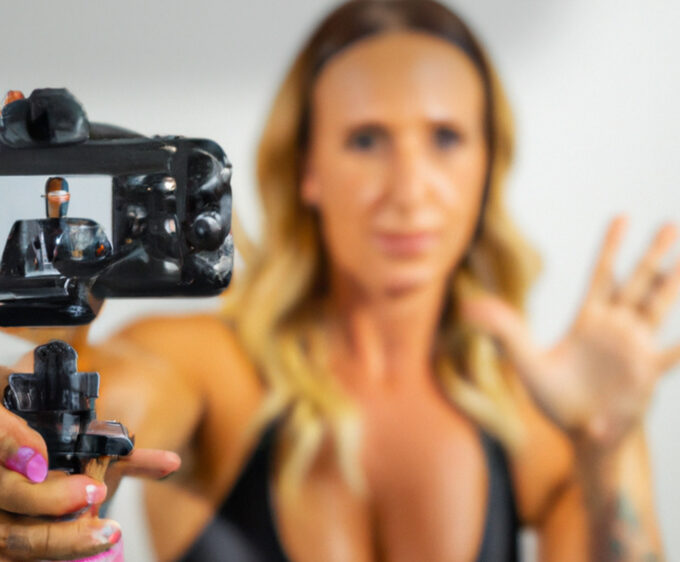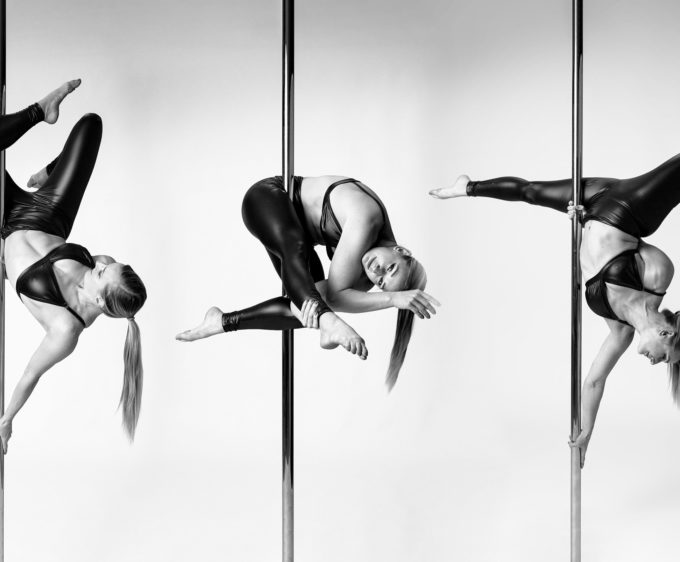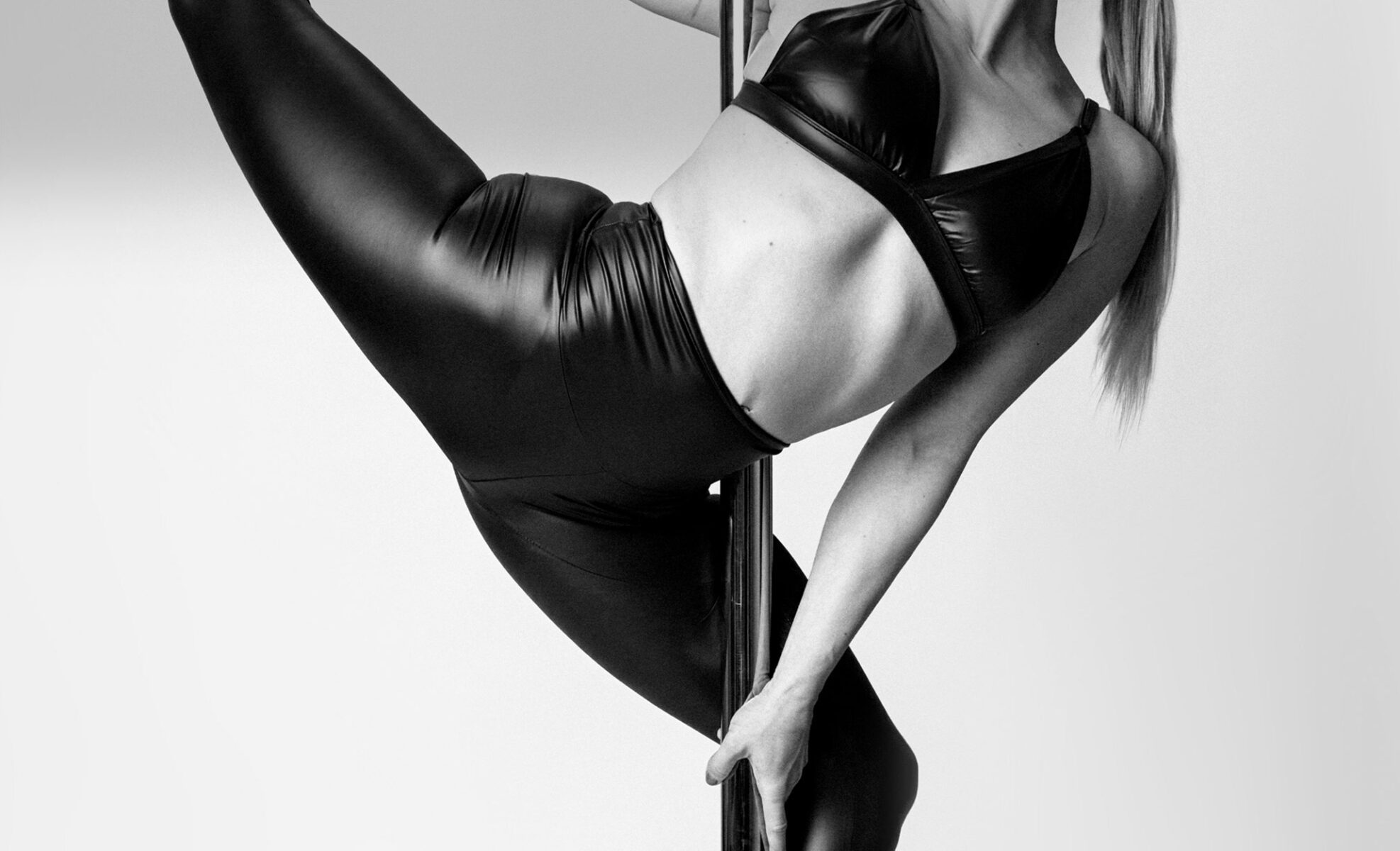
Pole Dancing’s Heritage Deserves To Be Respected, Not Sanitised
It’s an athletic and skilled practice, but will pole dancing ever (and should it) shed its sexy image? We take a deep dive into the art of pole and talk to women at its core
By Katie Baskerville
For a sport and performance that takes an extraordinary amount of strength, skill and showmanship, pole dancing’s impressive nature is often followed by a judgemental eyebrow raise. Its close proximity to sex work, strip clubs and sex in general causes something of a stir amongst those who hold sex-negative views but, does it really matter that pole dancing can be sexually provocative?
Sex negativity describes a tremendously damaging attitude towards sex outside of procreative marital coitus. This includes the idea that sex – or sex work – is inherently seedy or shameful, which has roots in misogyny and homophobia. And while many pole dancers who do not perform in strip clubs might not hold overtly prejudiced views, it would seem that there is bias at play, because many pole sportspeople are quick to undermine the contribution that pole dancers who work in strip clubs make, by othering it as something dirty.
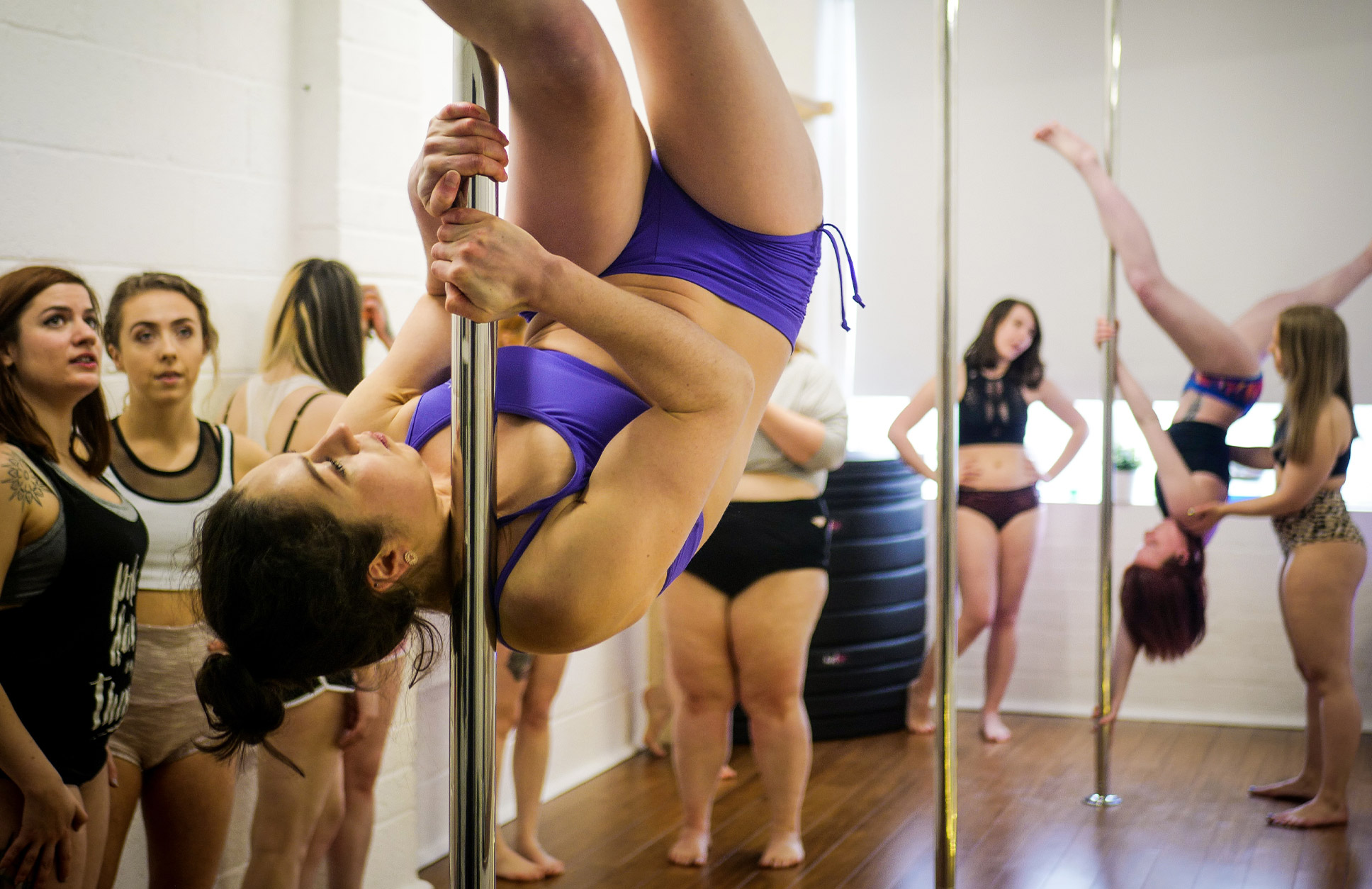
Where Did Pole Dancing Come From?
Though many believe it is derived from ancient male-dominated sports, such as Chinese pole and Mallakhamb, these are not the origins of pole dancing as we know it (impressive though these acrobatic endurance sports are). ‘Sexy’ pole dancing, the one that we are perhaps more familiar with, is a majority female-dominated arena. It is likely that pole dancing is informed by showgirls, hoochie-coochie travelling shows and the explosion of the sex industry. It’s also believed that one of its most influential origins began as a fertility dance in Africa. The truth is that it has always, and will always, belong to sex work. And, that origin story belongs to Black sex workers, specifically.
While more modern forms of pole dancing may choose not to embody sexiness, to erase it completely and other it co-opts the culture it comes from, detrimentally to those who pioneered it. In short, appropriating something Black women built from the ground up, after facing much prejudice and fetishisation is misogynoir in action. Gatekeeping pole dancing from the people who created it, then incorrectly attributing its history to a male-only sport, for want of a better phrase, is an absolute joke. Especially when competitions decidedly ban former strippers and sex workers from taking part in authentic-style competitions. (Authentic style pays homage to OG stripper-style choreography).
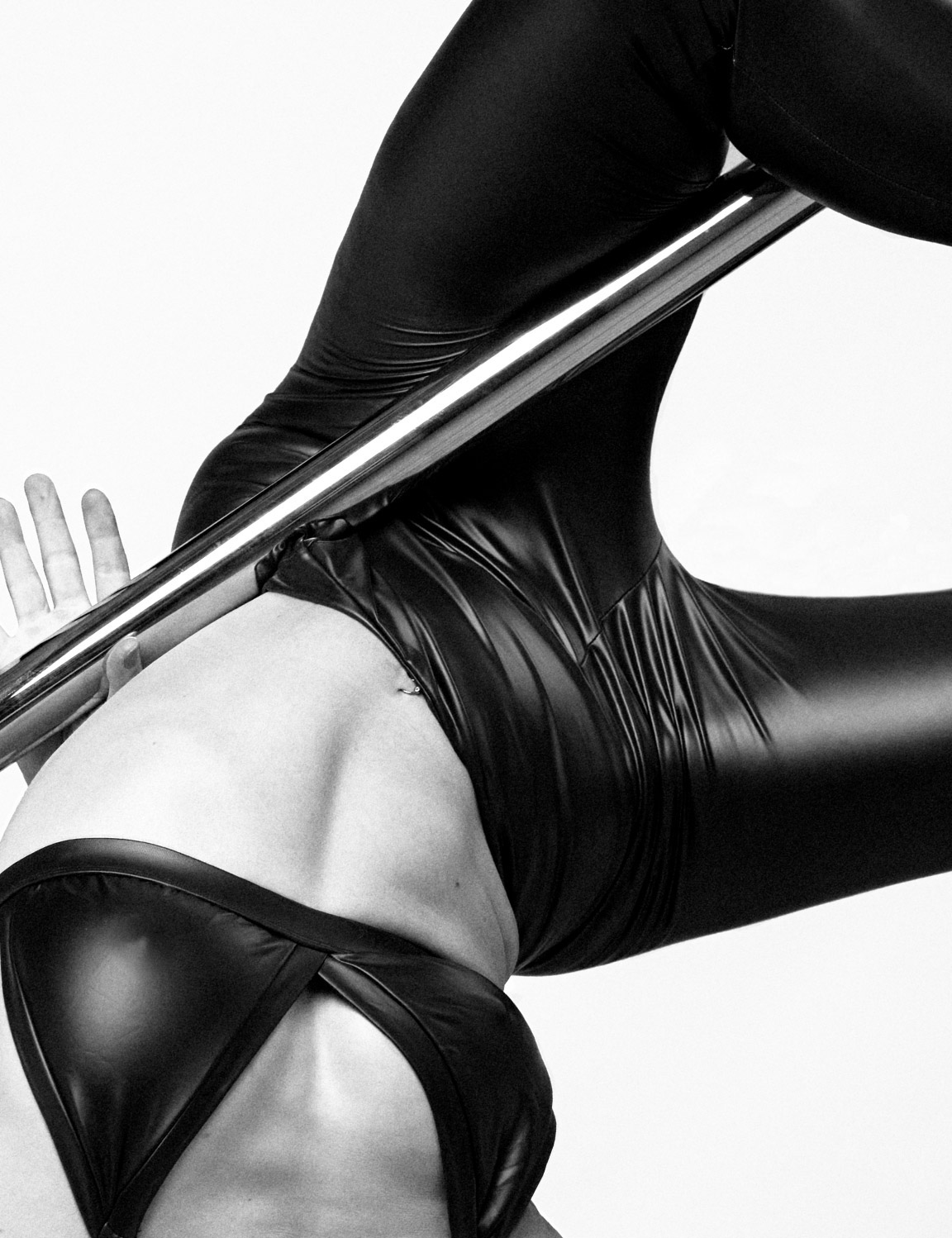
Moving Into The Mainstream
Mistress LilyMay, a dominatrix and stripper explains that, for them, taking pole dancing from the sex worker community affects their bottom line as much as their safety. Mistress LilyMay tells me that they believe that there’s a very real danger in even having these two different terms. “Without sex workers, their pole fitness wouldn’t exist. Whilst pole is being integrated into modern society, sex workers are once again being left behind.” They explain how the job is both emotionally and physically demanding, and now that things have moved into the mainstream, they have experienced heightened ‘whorephobia’.
“I’ve seen so many people who do pole hell-bent on making sure people know they’re not strippers. I’ve seen ads for pole fitness courses saying ‘it’s not just for strippers, these practices will help you become strong and empowered’ as if being a stripper means you’re not strong or empowered,” she says. “I personally view it as a form of stealing, and if anyone wants to learn pole, I believe they should be taught by strippers or ex strippers.”
This view is shared by many sex worker activists too, who say that slut shaming and Sex Worker Exclusionary Radical Feminists, or SWERFs, are perpetuating a dangerous narrative that stripping, adult entertainment and strip clubs are causing male violence. This is thanks to The Lilith Report, an infamous and debunked paper that wrongly correlated stripping in Camden to rises in assaults.
Image Problems
But it’s not only sex workers who are worried about the erasure. “I agree with the sex workers’ concerns. You can’t ignore or erase the fact that this is where it started. Just because you pole dance doesn’t immediately make you a sex worker, the shallow-mindedness of it all really hits a nerve with me,” says Gemma, who pole dances for pleasure, not work. The #notastripper trend undermines sex work, by suggesting that the kinship between fitness, stripper-style pole dancing and sex work is non-existent, or at least should be. And it’s clear that people who practise pole dancing as a competitive sport fear this association too. But, why? Is there something wrong with having sexiness attributed to you? Or does the problem lie in being associated with sex work itself?
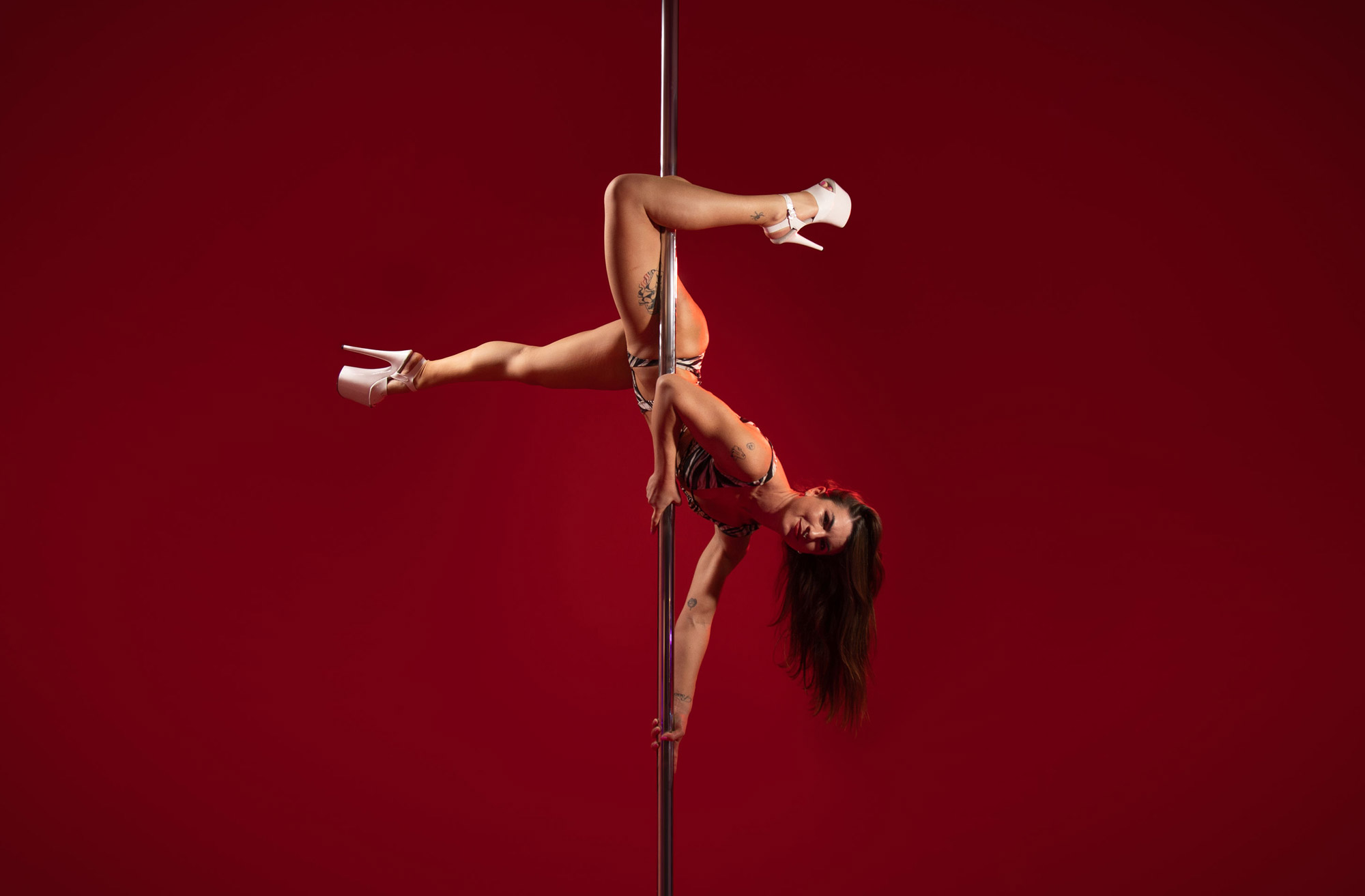
Kate Czepulkowski, professionally known as Bendy Kate, is a pole fitness performer and competitor who, on entering the sport, was horrified to be mistaken for a stripper. “I didn’t realise that stripping is a profession like any other, an art form and is hard work!” She explains: “Fourteen years later I have absolutely no shame in telling people I’m a pole dancer, I’m so proud of what I do and I support stripping/sex work.” Kate believes that if someone takes her profession the wrong way, that’s on them, not her (and they could do with a little eye-opening and education on the subject). Dr Carolina Are, who is also known as @bloggeronpole, is a performer, educator, researcher and activist. She tells me that the sanitisation of the discipline others and ostracises people who rely on their skills to make money, and further stigmatises a subjugated and marginalised group of people who are more vulnerable to violence and assault. But there is nuance here, because even though there are factions of pole dancing that are sexual in nature, that doesn’t mean that all iterations should be sexualised.
The truth is, being sexualised and objectified can feel dehumanising and humiliating if it is dished out in a non-consensual way, sex worker or not. Sexualisation is a form of harassment and assault after all, and nobody deserves or asks for it. Just ask the 97 per cent of women aged 18-24 who have been sexually harassed. So, it’s understandable that fear of sexualisation would make us want to put distance between and redefine a sport that attracts harm – though through no fault of its own.
If you are a pole dancer-cum-sportsperson it’s understandable that you’d want to make the differentiation – because it is different, but it needs to be differentiated for the right reasons, not because of worries that it could be attributed to sex work. And, for pole dancers like Kate, this is exactly how it should be. She explains to me that for her the only issue with being called a stripper would be that it’s incorrect. “There’s nothing wrong with stripping but I’ve just never done it, although I’ve been pole dancing for a very long time,” she says.
Liberation
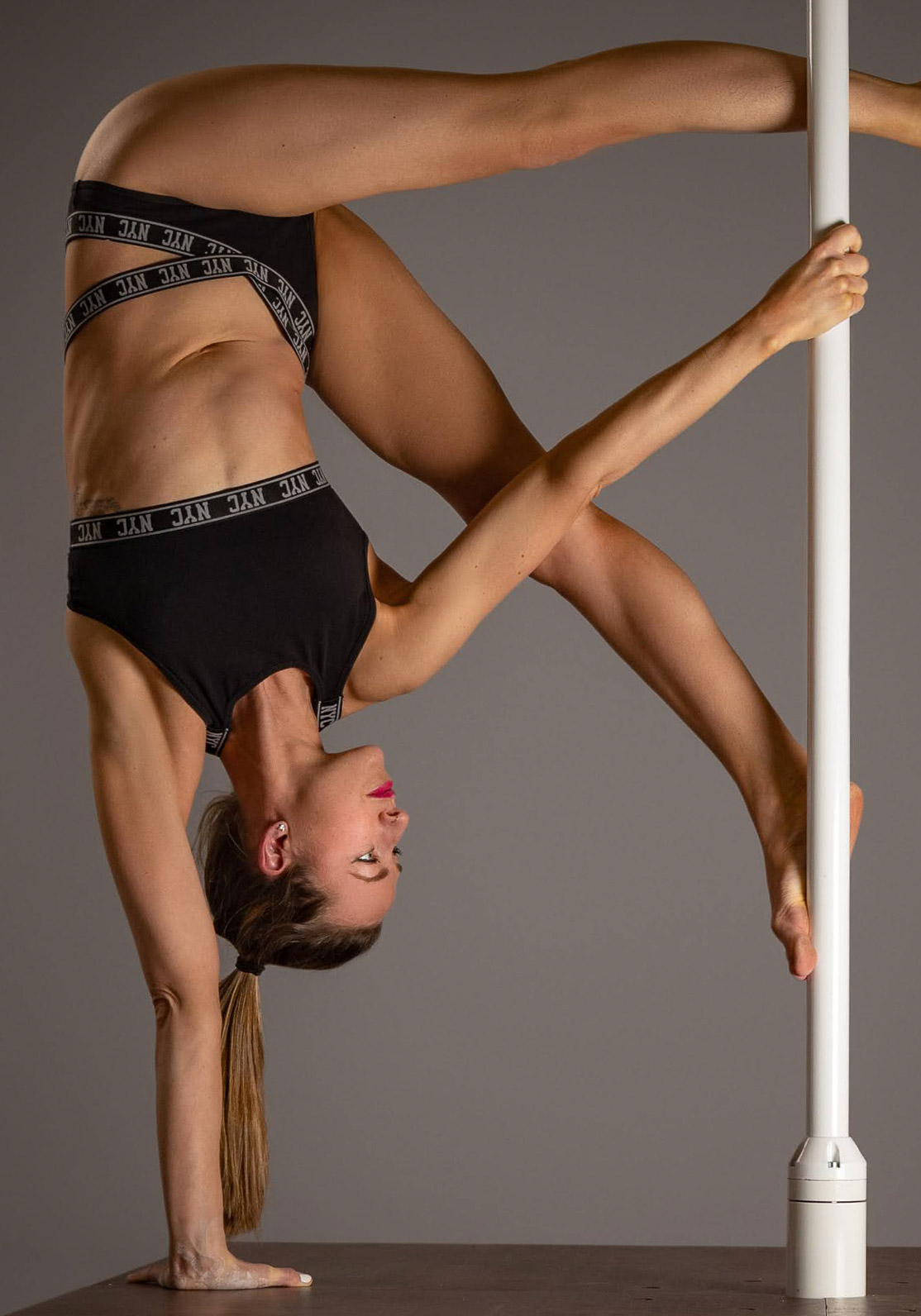
Keeping It Clean
Now, as pole dancing makes moves towards becoming an Olympic sport for the 2024 games, thanks to its recognition by the Global Association of International Sports Federation in 2020, its historic sexual connotations are causing discomfort amongst some of its derivations and potential sports spectators. Likewise, those in (and out of) the sex worker community are worried about what inclusion could mean for their livelihoods, safety and community.
When Sophie Badger opened her Pole Dancing studio, Constellations Fitness, she was told by her landlord and estate agent that her business shouldn’t mention ‘pole dancing’ because they thought it would send out the wrong message (whatever that meant). “I fought with myself about calling it ‘Fitness’ because it is pole dance, I learnt pole dance from strippers and sex workers, but I was made to feel like I should in order to keep the locals happy,” she explains.
This is one of the more mild examples of how prejudice rears its head. However, it is worse for establishments where sex workers operate, such as Obsessions, in Manchester, which is being threatened with closure due to a consensus that it makes the city look ‘seedy’. In Bristol, a dangerous precedent was almost set when a strip club ban was proposed by the Bristol Women’s Commission, (BWC), which argued that the presence of strip clubs promoted gender inequality and sexist culture that leads to male violence. In the end, this view was opposed by 86 percent of voters, supported by @ukdecrimnow and @BristolSWC.
But other cities, such as Blackpool, have fallen foul of the nil-cap-policy, (meaning the number of licences given to sex worker establishments equates to zero), in favour of more ‘family friendly’ entertainment, or to ‘clean up’ its image. The idea is that shutting down these clubs will eradicate sex work, but it won’t. Sex work is not an industry powered by demand, it is an industry powered by people trying to make a living, and without licenced venues, it pushes it further underground into a wild west of exploitation where abuse can be rife.
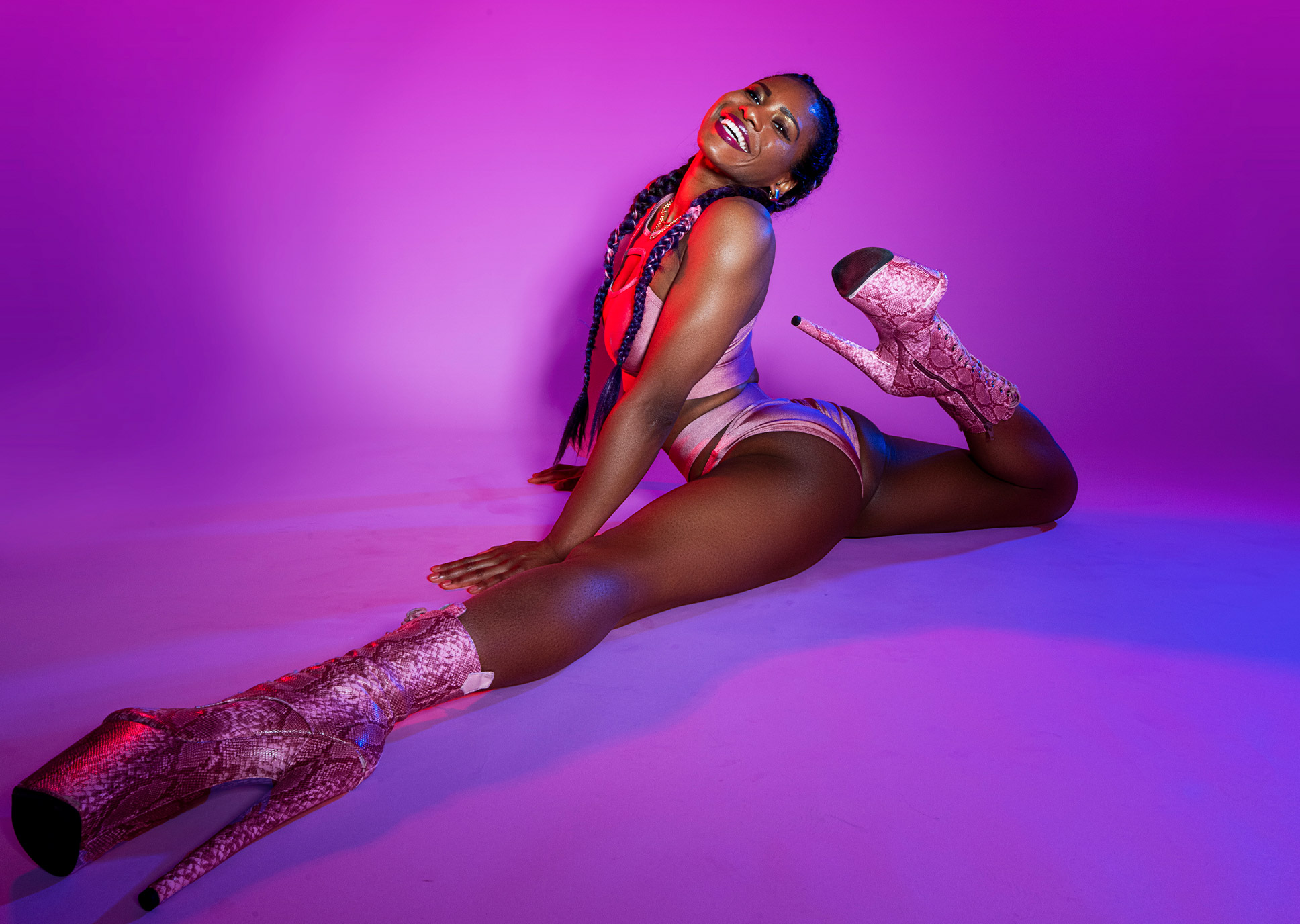
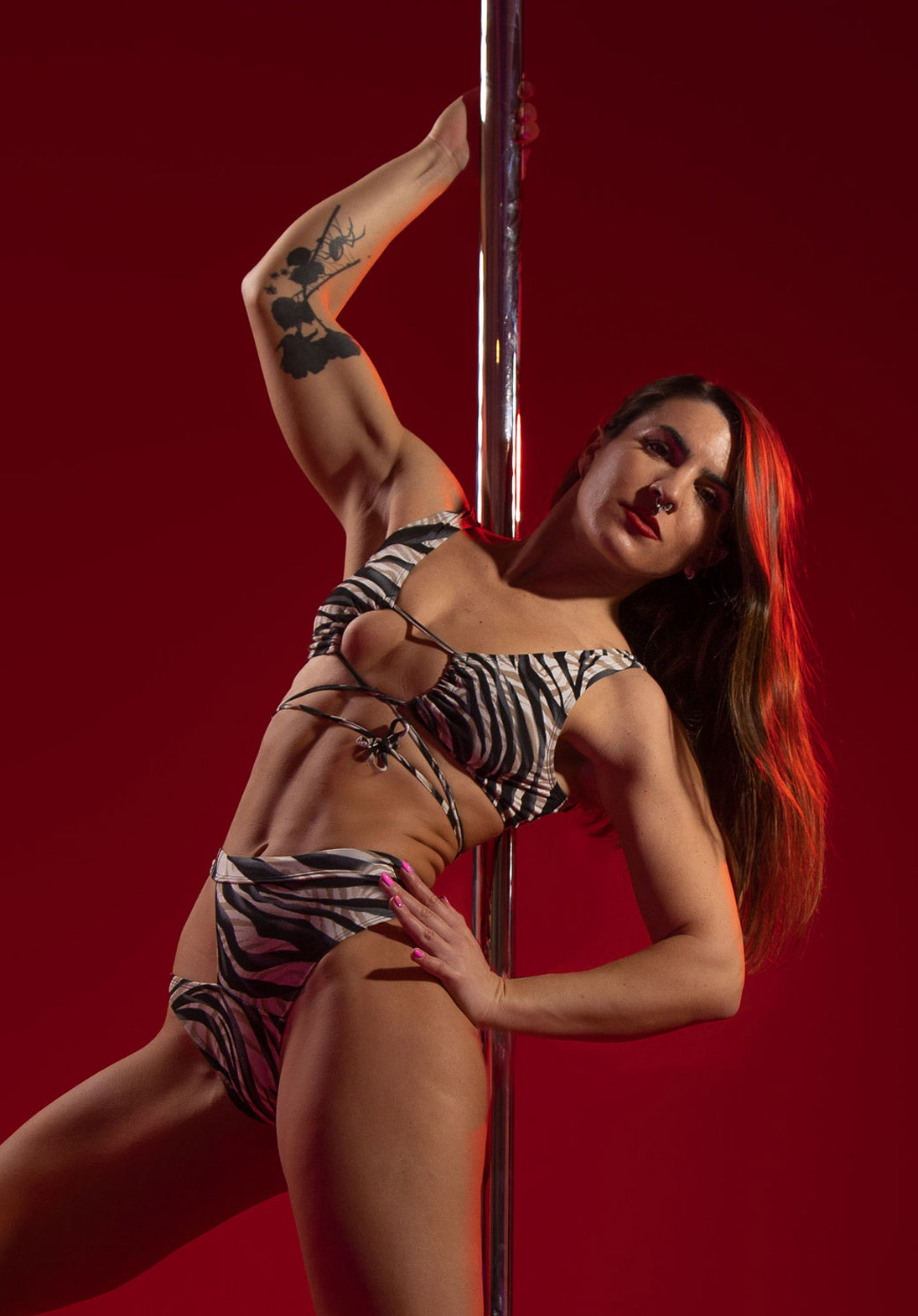
Though there is hope, as nil-caps can be overturned, as shown by the incredible work United Sex Workers have done in overturning Edinburgh council’s unlawful nil-cap on its strip clubs. “Not only is this a huge win for strippers in Edinburgh, who are no longer facing the prospect of forced [sic] mass unemployment in the middle of a recession, but for the working rights of strippers across Britain,” their statement reads.
Eradicating strip clubs in favour of a ‘cleaner’ pole fitness image is detrimental too. Dr Are tells me that this binary split between what is perceived as a good thing or a bad thing ironically contributes to the stigma sex workers face, but also contributes to the judgement of those who practise pole as an art form, or spot. “It’s really pointless to try and separate the two. It is an art and a sport that can be practised in a studio or a strip club – where you do it doesn’t change the fact that it is a really impressive thing,” she says. “We really have the duty now just to respect the origins of our art and of our sport, but also to amplify the voices of sex workers who are censored more than us on social media and beyond.”
empower
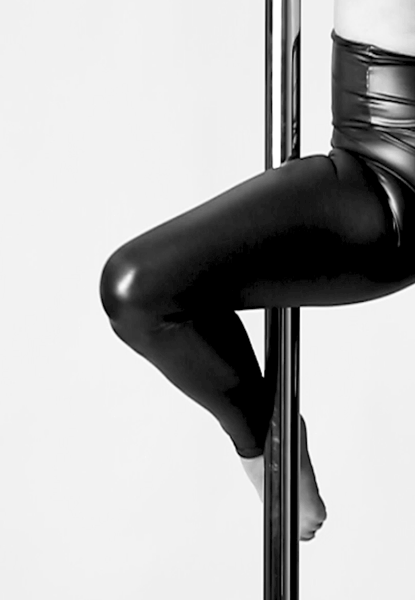
Recognising The Boundaries
Liv, who started pole dancing to reconnect with her body, speaks fervently against the sanitisation of pole dancing, saying, “Just because something is sanitised doesn’t mean it will make it safe, likewise giving it regulations and awarding boards won’t stop vulnerable people from being hurt. In the same way gymnastics is rife with abuse of its athletes, pole will become the same.”
Speaking to Robyn, who has been practising pole dancing for fitness for the last three years, I learn that, for her, pole dancing’s proximity to sex work is no big deal. “I’m totally for pole dancing in the Olympics,” she says, “but we need to respect where pole originates, and it originates from so many different places. Sex work shouldn’t be erased from pole’s history. It’s a problem with society that they can’t reconcile the fact that people do sex work and that sex work is valid. We need to change our points of view, educate and not dilute what pole can be in its other iterations.”
Jess Knapper, owner and pole dancing teacher at Pivot Pole Studio says, “My family have been quite supportive of me [pole dancing], but I do think it would be a different story if I was stripping.” There’s also no getting away from the fact that people who practise pole for empowerment and fitness have vastly different experiences of learning and performing pole dancing than sex workers do. For sex worker Luci, learning pole dancing to diversify their income streams was met with outrage when another person in their class found out about their line of work. “I couldn’t believe that someone in a class named ‘Stripper Pole’ could be so horrified by me being an actual sex worker,” they tell me.
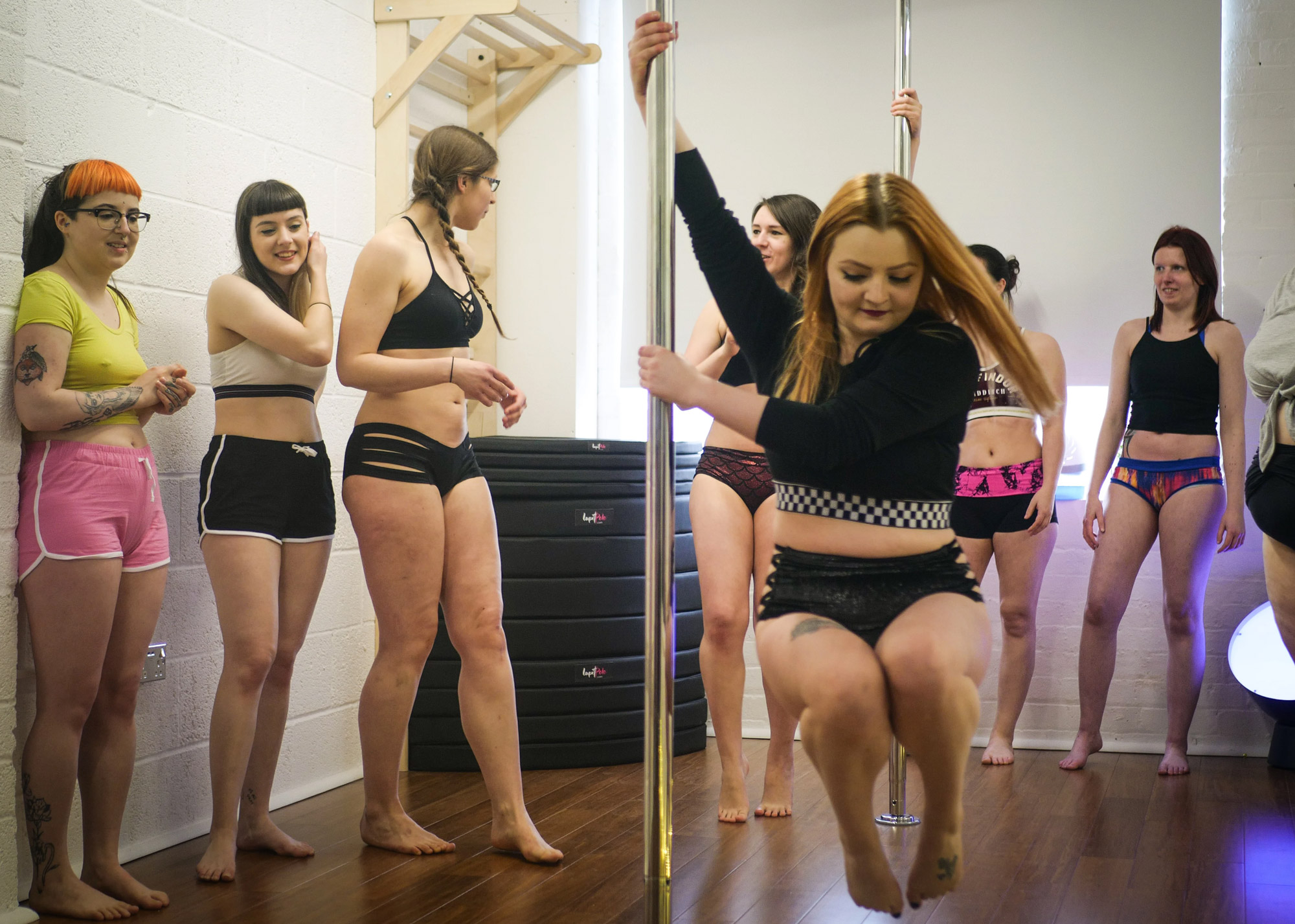
misunderstood
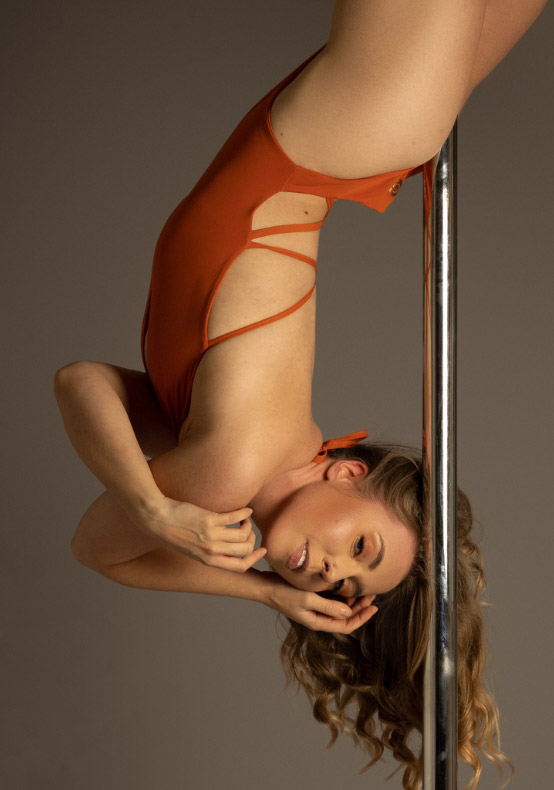
So does it matter that pole dancing can be seen as sexy? Annoyingly, the answer is both yes and no – no, because there is nothing wrong with sexiness and yes, because seeing something as sexy shouldn’t condemn it. We should be able to explore sex and sexiness in safe, consensual ways, on and off the pole. The problem lies with sexualisation and ignorance, rather than sexiness itself. The biggest problem with pole dancing is the need to erase and eradicate sex work from its history and its future. Sex worker origins are not the problem – sexualising non-consensually is. If anything, sex workers should be celebrated and held in high acclaim. Without recognising the immense contribution that sex work has made towards fitness and sport, we do an immense and damaging disservice to a woefully misunderstood industry.
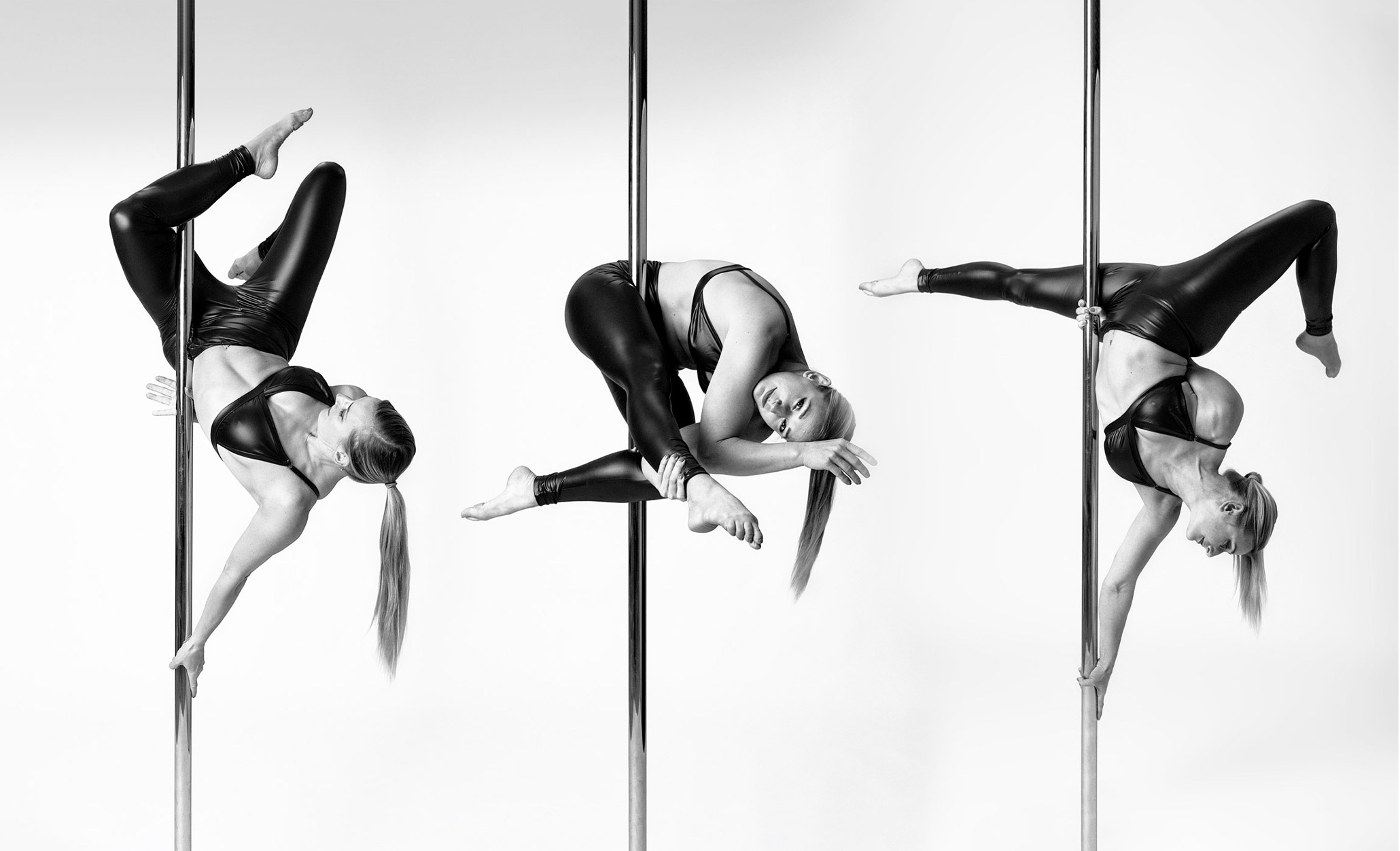
Editorial Design by this is root, Title Image Photography by Heiko Prigge
